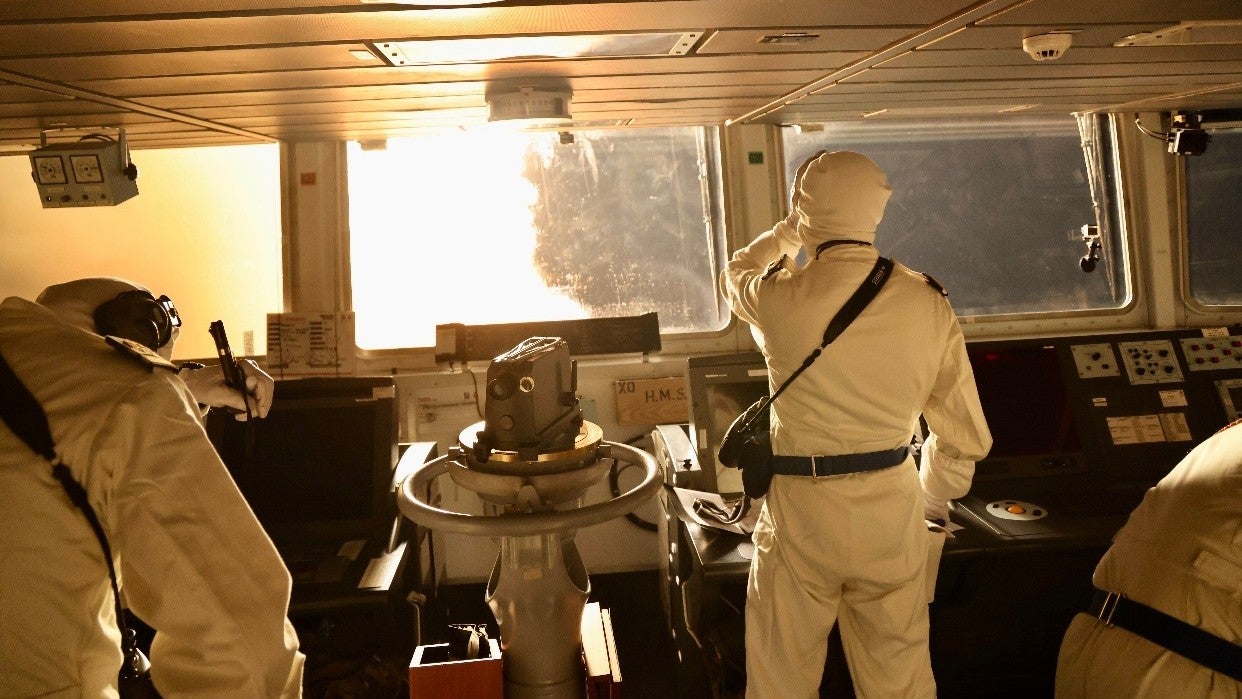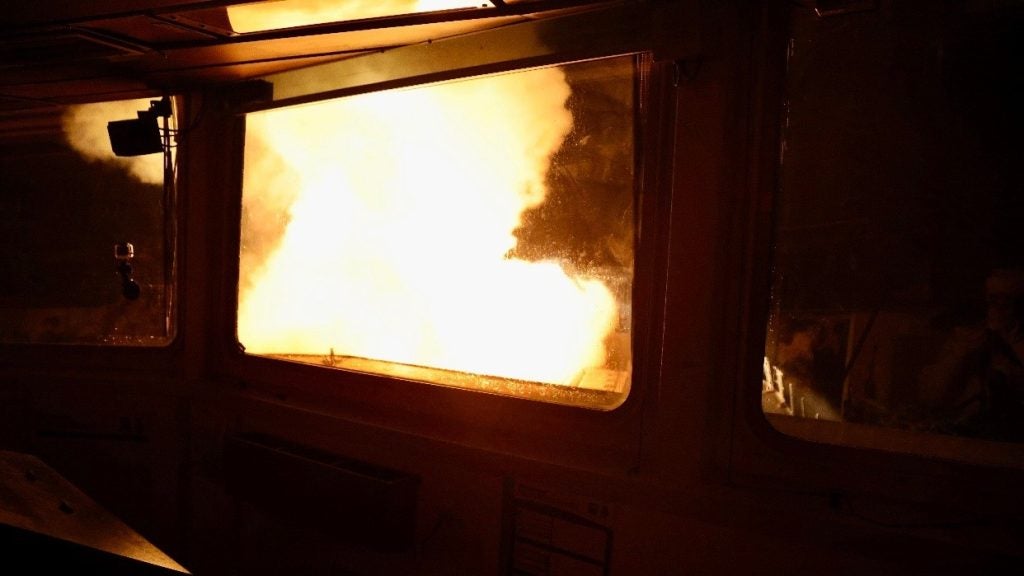
The Houthis’ “largest attack in the Red Sea to date” has been thwarted by the US-led naval coalition, amid rising concerns about the safety of routes in the region among shipping firms and defence experts.
UK Defence Secretary Grant Shapps said the Yemen-based militant group’s attack, which occurred at 9:15pm (Sana’a time) yesterday (9 January 2024), was “repelled” by the UK’s HMS Diamond a Type 45 destroyer.
Houthi attacks have severely disrupted global shipping trade – 10% of which passes through the Bab al-Mandab Strait.
Companies including Maersk, Hapag-Lloyd and COSCO have suspended routes through the Suez Canal and Red Sea.
Vessels rerouted to circumnavigate the Cape of Good Hope and African continent add an “additional 14 or more days and approximately $1m in operating costs”, Corey Ranslem, CEO at maritime intelligence firm Dryad Global, told Naval Technology. “We expect the missile and drone threats – and diversions around the Red Sea – to continue for the foreseeable future.”
The number of container vessels passing through the Bab al-Mandab Strait has decreased by 70% since Houthi attacks began, according to AI-driven maritime risk analysts Windward, contrasted by a 136% increase in voyages through the Cape of Good Hope.
US and UK claim Iranian involvement
US warplanes and warships were also involved in the anti-Houthi operation.
A US-led multinational naval coalition has been patrolling the Red Sea in an attempt to prevent the attacks, described by Ranslem as “fairly effective at countering the Houthi threat”.
According to the US Central Command (CENTCOM), the “Iranian-backed” Houthis launched 18 “Iranian-designed” UAVs, two anti-ship cruise missiles and one anti-ship ballistic missile.
In a UK Ministry of Defence (MoD) statement, Shapps – who has come under fire recently for asking the Royal Marines to “justify their existence” – also described the Houthis as “Iranian-backed”.
Meanwhile, Tehran-based Islamic Republic News Agency reported that the “Yemeni fighters’ move has made the Americans confused and worried”.
While some onlookers have expressed alarm at the intensification of US and UK military activity in the region, GlobalData Defence Analyst Tristan Sauer said the Red Sea naval coalition is unlikely to expand beyond current operations.
“Strikes on Iranian territory from US and UK forces are pretty much a non-starter at the moment,” Sauer told Naval Technology. “Iran has such pull with other regional proxy forces that this would only make a bad situation worse.”

UN Security Council calls crisis vote
The attempted attack is the 26th Houthi attack on commercial shipping since the group first seized the Galaxy Leader cargo vessel on 19 November 2023.
It also marks the largest-scale Houthi operation in the Bab al-Mandab Strait, initiated in protest to Israel’s ongoing war on Palestine.
The Houthis initially threatened to target Israeli-affiliated ships, but yesterday’s attack shows the Houthis’ willingness to follow through on their warning to ships “of any nationality” crossing the Red Sea.
The UN Security Council is due to hold a vote today (10 January 2024) on a US-proposed resolution that would condemn Houthi attacks and demand an immediate halt.
At a Security Council meeting last week, UN figureheads called for a de-escalation of militarised operations in the Red Sea – and the release of the Galaxy Leader and its crew.
“No cause or grievance can justify continuation of these attacks against the freedom of navigation,” said Khaled Khiari, UN Assistant Secretary-General for Middle East, Asia and the Pacific in the Departments of Political and Peacebuilding Affairs and Peace Operations.
Rhetoric surrounding a potential military response in Yemen itself is becoming increasingly confrontational.
Whether or not there is a US-UK intervention against the Houthis, the “risk perception for commercial shipping is only going to worsen, barring any geopolitical miracles”, Sauer added.







